In a pivotal (and crucial) meeting of European leaders, significant discussions centered around Ukraine’s sovereignty, migration challenges, as well as economic competitiveness set the stage for the EU’s future. This blog post (delves into) key highlights and insights shared by António Costa, Ursula von der Leyen and Viktor Orbán: outlining bold plans laid out for the EU by 2025. However, these discussions reflect complexities (and nuances) that cannot be overlooked, because the implications are far-reaching. Although leaders are optimistic, the path forward remains uncertain and this creates a need for careful consideration and strategic planning.
Table of Contents
- Sneak Peek: Key Highlights from EU Leaders
- Orbán on Economic Challenges and the Budapest Declaration
- Costa’s Focus on Strengthening Global Relationships
- Humanitarian Aid and Recovery Efforts in Syria
- Orbán on Agricultural Policy and Jewish Life Promotion
- Costa on Transatlantic Ties and Strategic Partnerships
- Orbán’s Summary of Hungary’s Achievements
- von der Leyen on Syria’s Future and Schengen Area Milestones
- Full Speeches: António Costa
- Full Speeches: Ursula von der Leyen
- Full Speeches: Viktor Orbán
Sneak Peek: Key Highlights from EU Leaders
The recent meeting of EU leaders (1) brought to light several pivotal issues facing Europe today. With the war in Ukraine and the ongoing challenges of illegal migration, leaders emphasized the need for unity and decisive action. The discussions highlighted the necessity of a strong response to Russia’s aggression; however, the importance of maintaining Schengen zone’s integrity remains paramount (2). Although these issues are complex, this is crucial because the future stability of Europe depends on effective collaboration among nations.
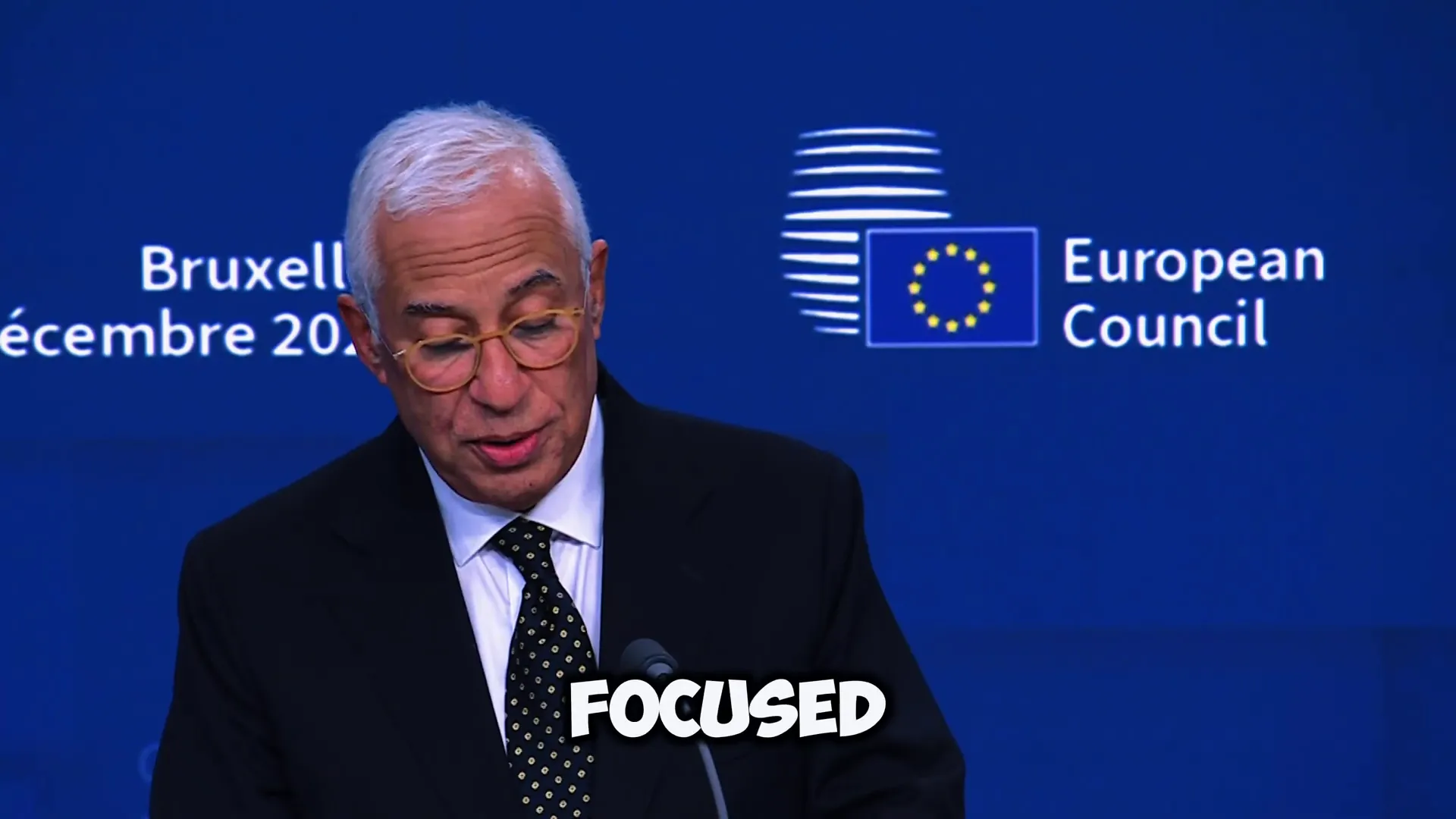
Opening Remarks by António Costa
António Costa (President of the European Council) opened the meeting with a clear message of unity. He noted that the European Union stands firmly behind Ukraine (emphasizing that the conflict is not merely a regional issue) but a challenge to international order and principles. Costa highlighted that 2025 would be a critical year for the EU; however, it navigates these turbulent times.

Ursula von der Leyen’s Vision for 2025
Ursula von der Leyen (President of the European Commission) echoed Costa’s sentiments; she stated that 2025 (marks a decisive moment) because it will be three years since Russia’s invasion of Ukraine. She stressed the need for the EU to bolster support for Ukraine, both morally and strategically. Von der Leyen outlined the financial commitments made by the EU, highlighting that almost €130 billion has already been provided to Ukraine (ensuring economic stability through 2025). However, this support is crucial; but challenges remain in the ongoing conflict. Although significant funds have been allocated, the situation evolves continuously.
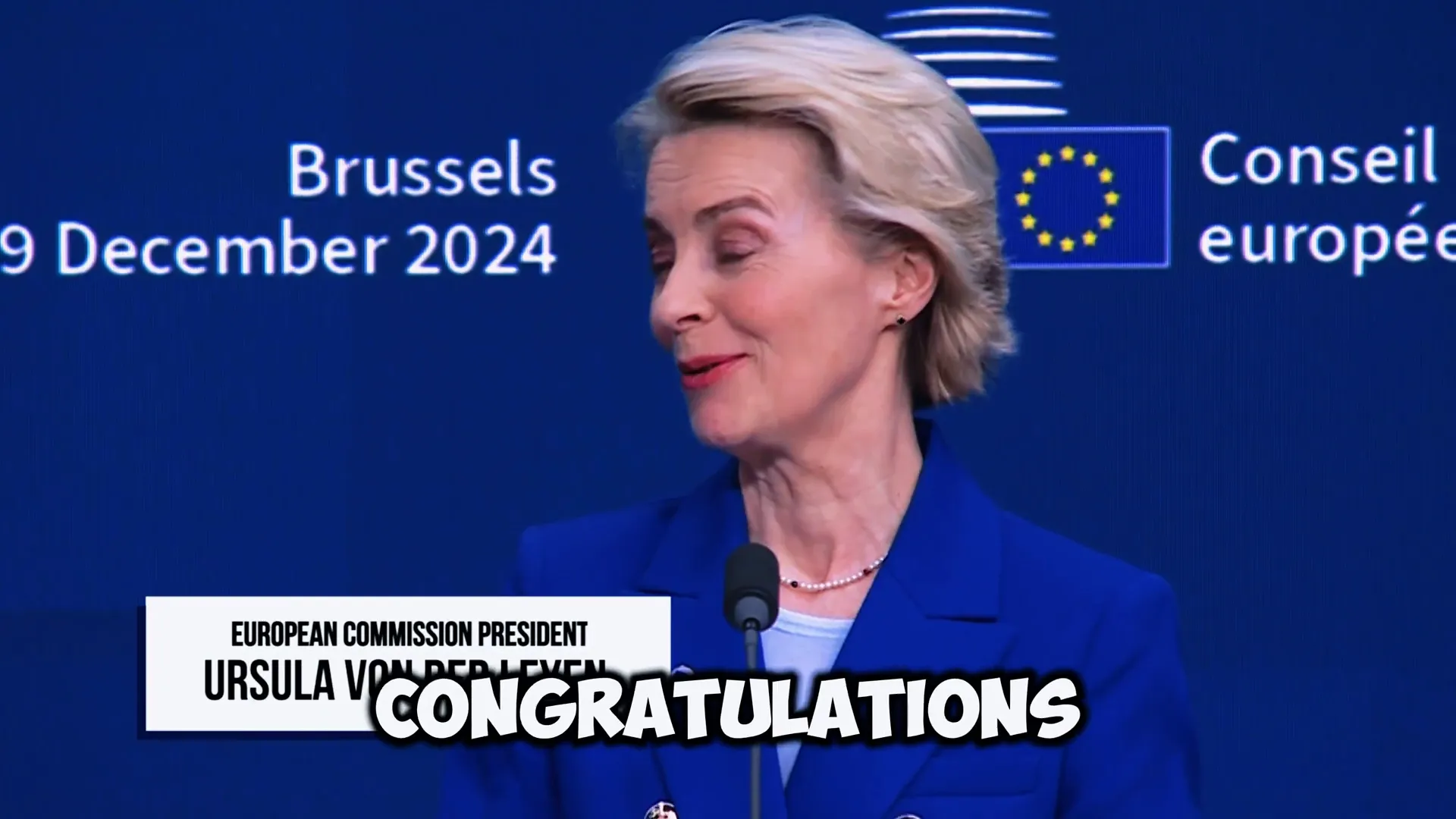
Viktor Orbán on Hungary’s Priorities
Viktor Orbán (Prime Minister of Hungary) shared insights from Hungarian presidency, which has faced unprecedented challenges (1), including ongoing wars in Ukraine and Middle East. He underscored importance of a political presidency over a bureaucratic one; advocating for bold decisions to address pressing issues of security and migration. Orbán stressed need for EU to regain its competitiveness on global stage. However, this task is complex, because various factors influence the situation. Although many support his views, not everyone agrees.
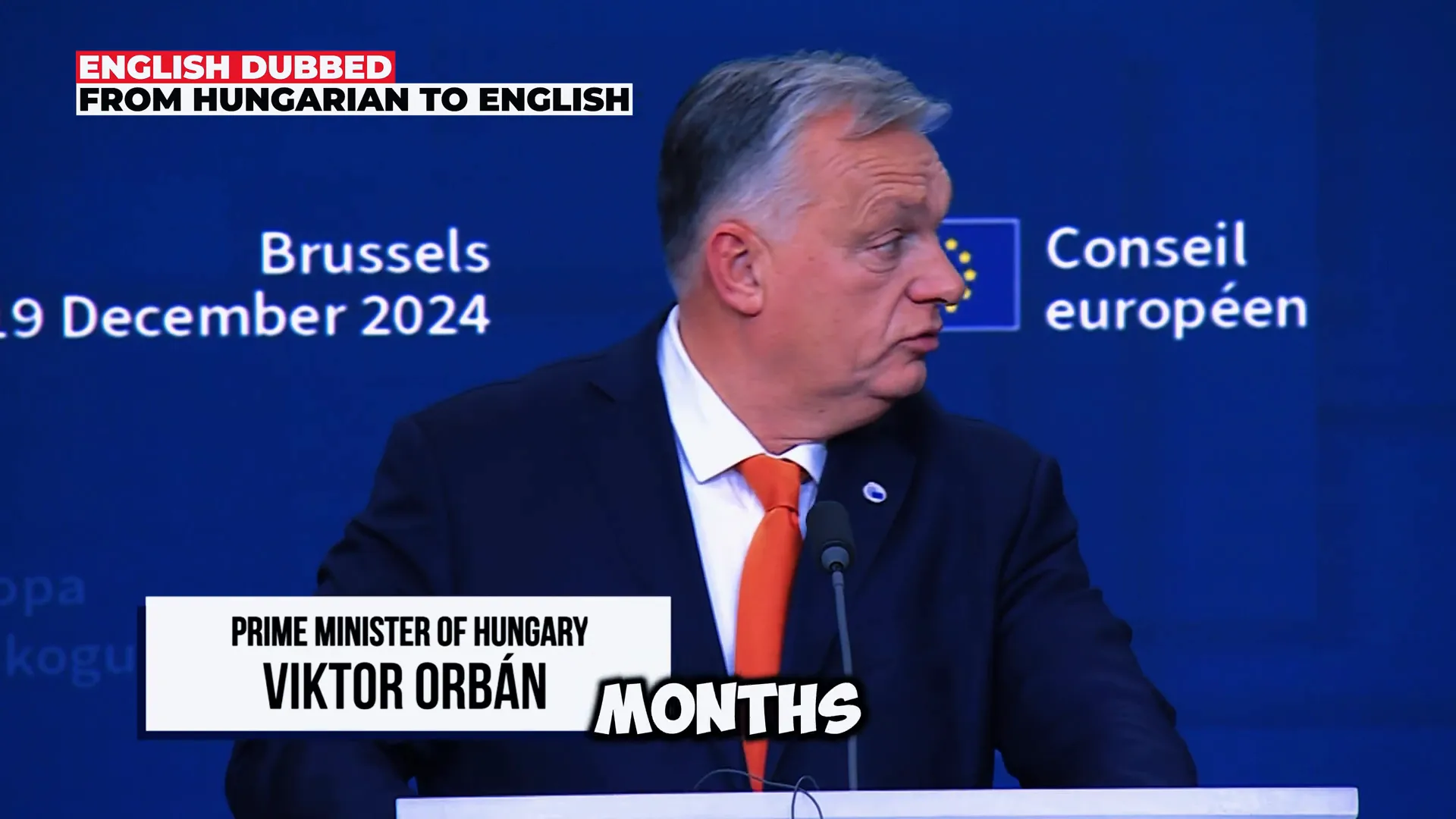
Costa’s Clear Message on Ukraine’s Sovereignty
In his remarks, Costa made it (unequivocally) clear that Ukraine must determine its own peace terms. He articulated that any negotiations must respect Ukraine’s sovereignty and territorial integrity; however, the EU’s message was one of unwavering support. This emphasizes that Ukraine should be positioned for strength in any future negotiations, although challenges remain.
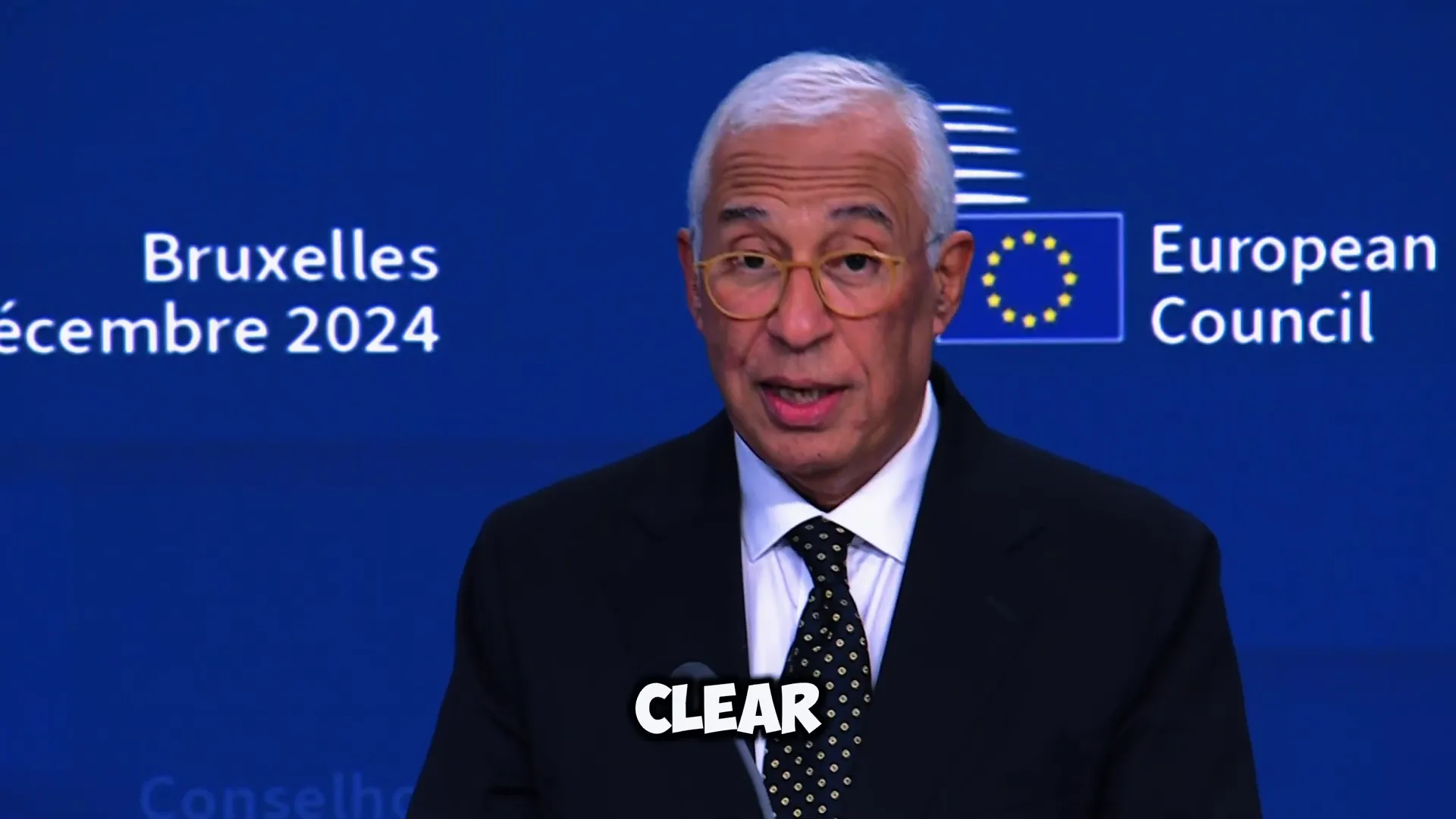
Financial Support for Ukraine by von der Leyen
Von der Leyen detailed (1) the financial framework supporting Ukraine; noting that the EU has secured economic stability through comprehensive measures. She emphasized the importance of enhancing Ukraine’s energy infrastructure and ensuring that financial support translates into tangible military (and humanitarian aid). The commitment to support Ukraine not only reflects ethical considerations, but also strategic imperatives for the EU’s own security. However, (this) commitment requires continuous evaluation (because) the situation is ever-changing. Although funding is crucial, the effectiveness of aid must be monitored closely.
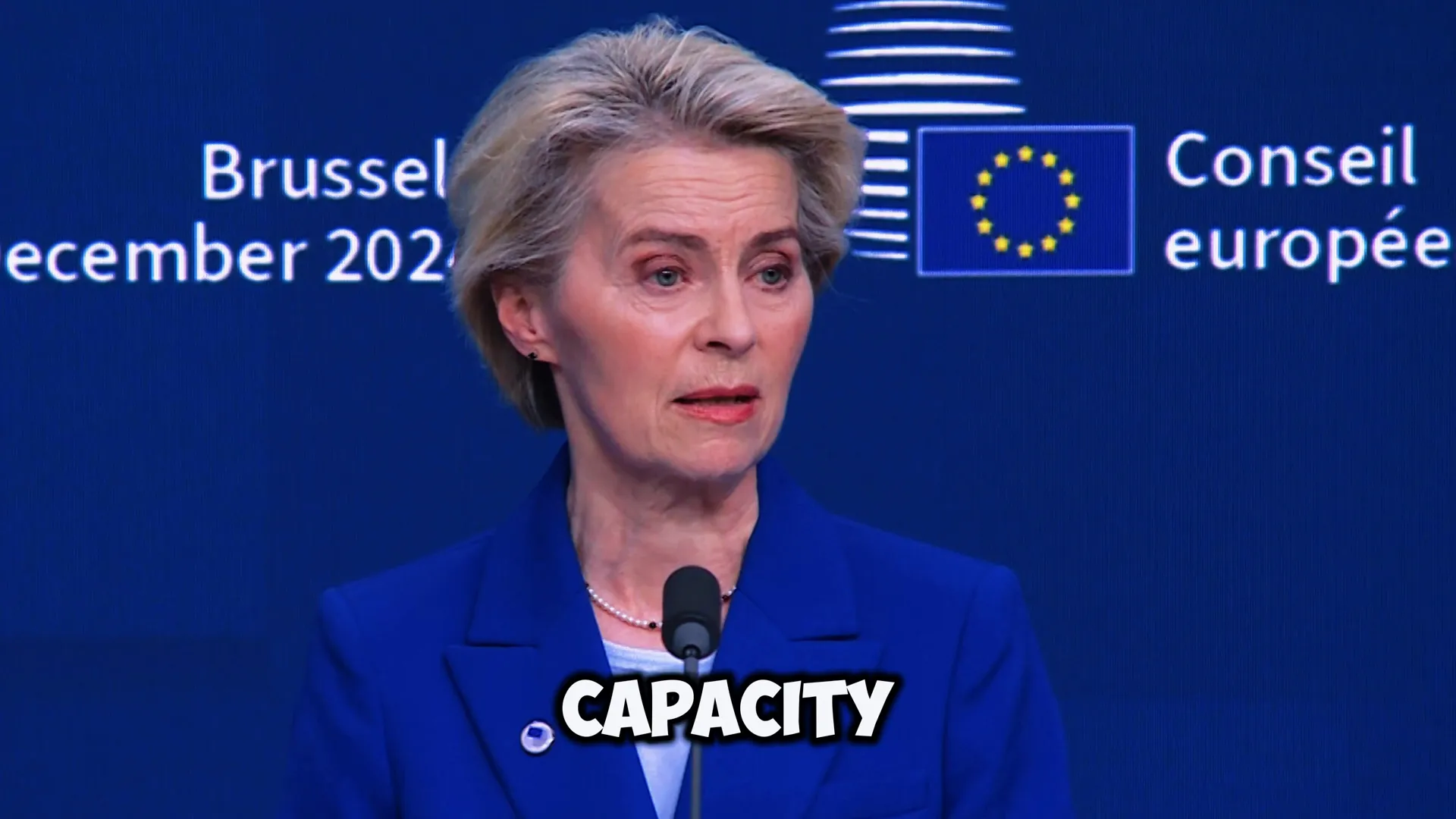
Orbán on Economic Challenges and the Budapest Declaration
Viktor Orbán (1) highlighted pressing economic challenges faced by the European Union; he pointed out that EU is losing its global competitiveness (2), trailing behind major economic players. The Budapest Declaration emerged as a pivotal document during his presidency. This declaration calls for simplification revolution that addresses these issues head-on. However, many question its effectiveness, because the challenges are complex and deeply rooted. Although some support the initiative, others are skeptical about its potential impact.

The declaration (which) emphasizes the need for affordable energy (and) support for small and medium-sized enterprises. Orbán noted that the EU must take decisive action to revamp policies: those that inhibit competition. He remarked that the implementation of the declaration’s 51 points is crucial, however, for the EU to reclaim its competitive edge on the global stage.
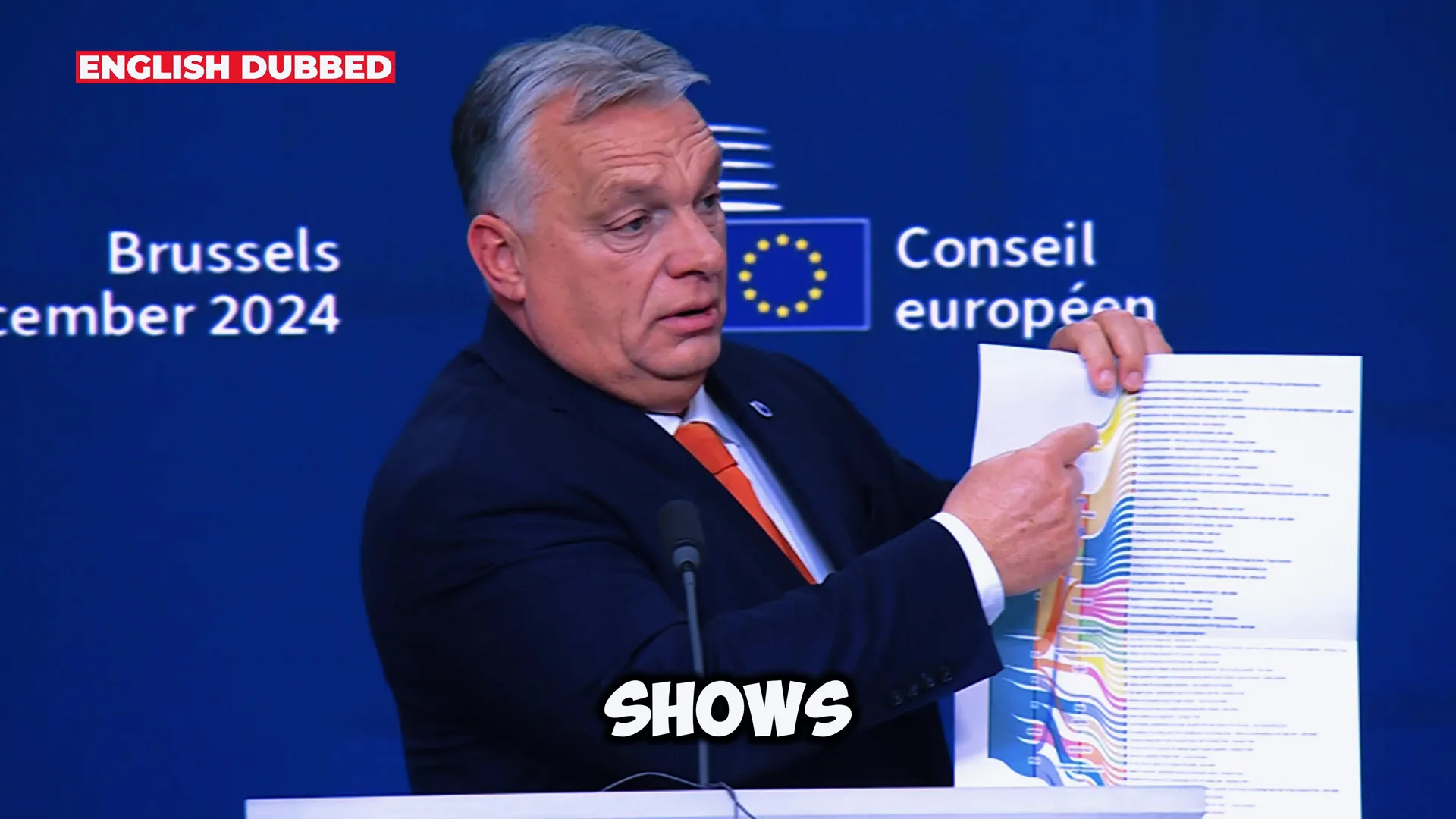
Key Points of the Budapest Declaration
- Call for a simplification revolution.
- Focus on affordable energy solutions.
- Support initiatives for small and medium-sized enterprises.
- Address the need for comprehensive policy reforms.
Costa’s Focus on Strengthening Global Relationships
António Costa (1) emphasized necessity for European Union to strengthen (its) global relationships; focusing on shared priorities with various countries. He underscored importance of these partnerships in addressing pressing global challenges, such as climate change and international security. However, this is crucial because (2) effective collaboration can lead to more robust solutions. Although some may disagree, the urgency of these issues cannot be overstated.
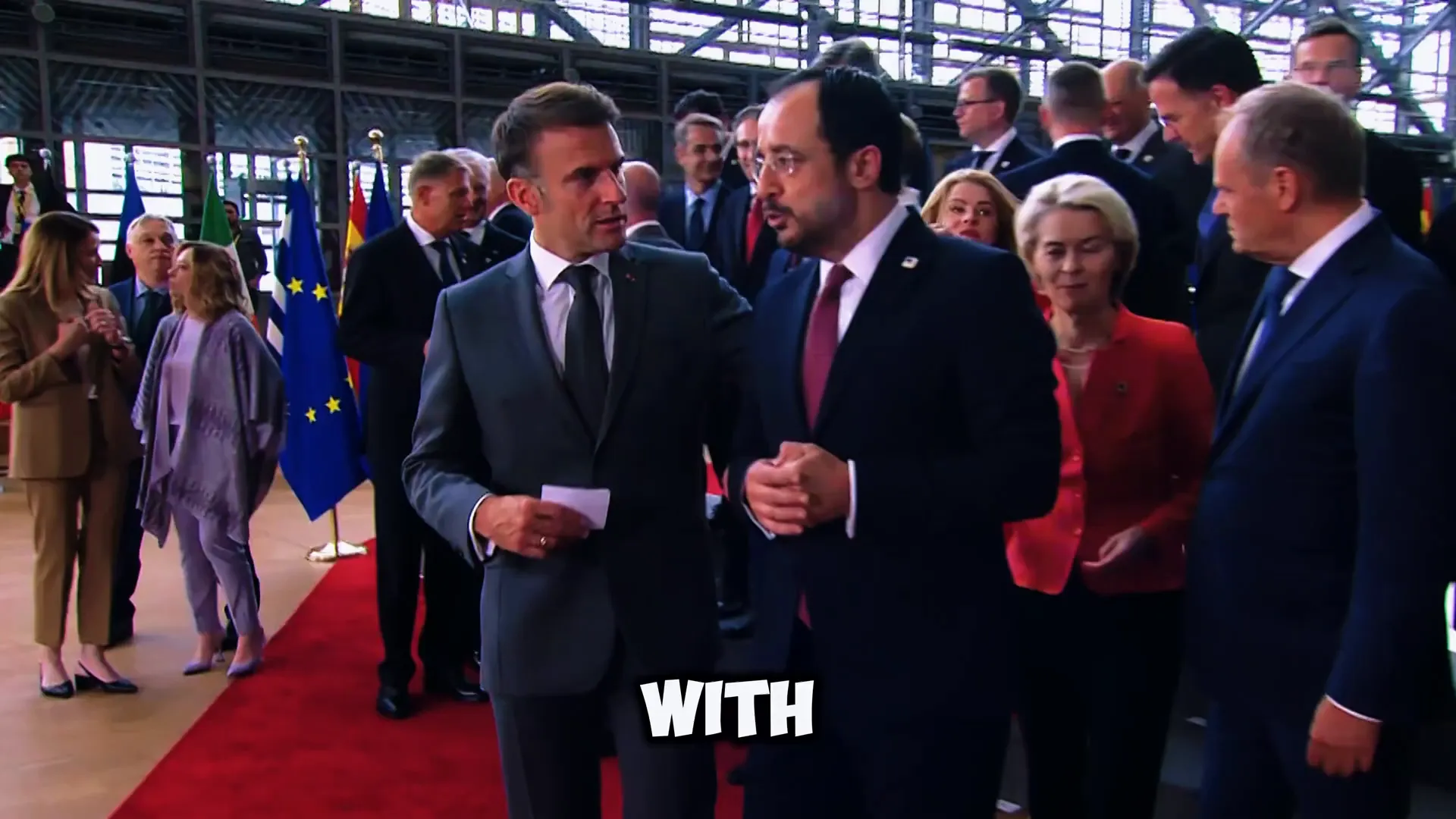
According to Costa (1), a multipolar world presents opportunities for EU to forge mutually beneficial partnerships. He pointed out that EU must adapt its approach (2) and engage with countries across continents to promote international law, however, reduce poverty. Although this requires effort, it is essential for progress because collaboration is key.
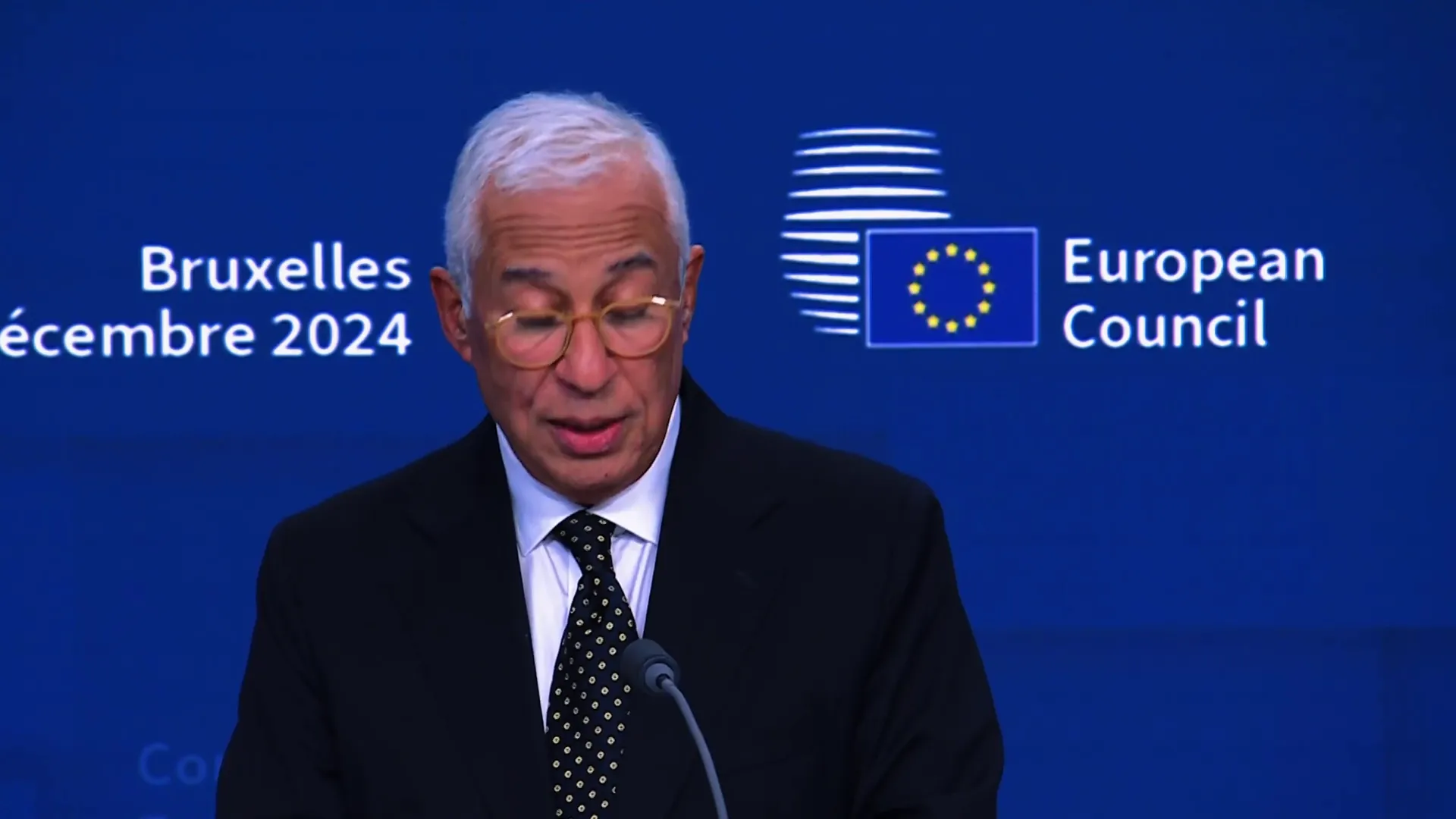
Strategic Partnerships
- Strengthening ties with the United States.
- Enhancing relations with the United Kingdom.
- Building partnerships in the Global South.
Humanitarian Aid and Recovery Efforts in Syria
In response to (the) ongoing crisis in Syria, Orbán noted that Europe is committed to supporting humanitarian efforts; he highlighted (that) the EU’s role as the largest donor (is significant) because it steps up support to address the needs of the Syrian population. However, this commitment remains complex, although many challenges persist.
Orbán outlined (1) the establishment of channels for political discussions, which are crucial for addressing humanitarian needs. He mentioned the launch of a humanitarian airbridge for delivering aid through Turkey and Jordan; however, he emphasized that more support is still required (2). Although progress is evident, this remains a pressing issue, because the urgency of the situation cannot be overstated.
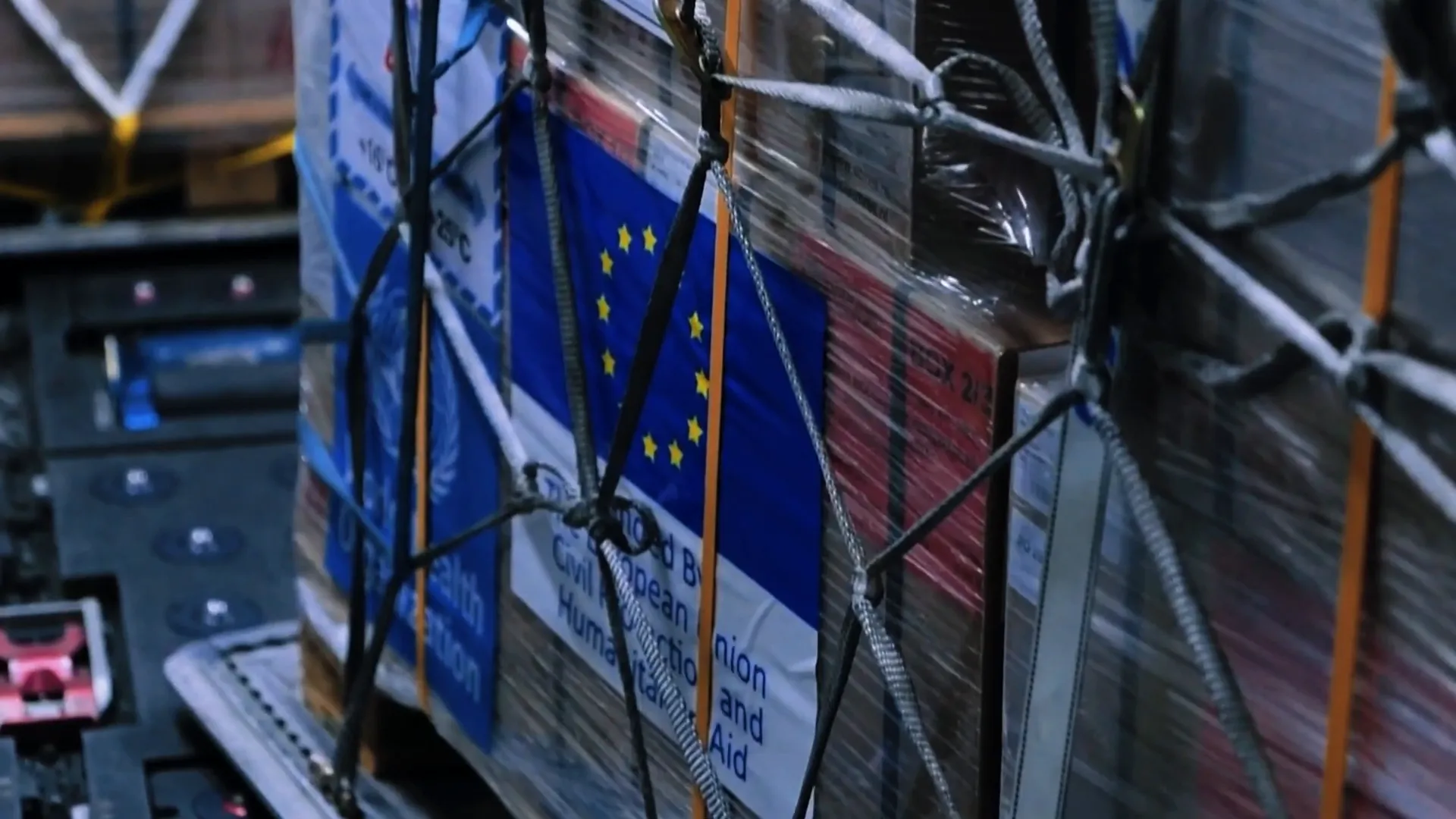
Focus Areas for Humanitarian Aid
- Increasing financial support to more than €160 million for this year.
- Ensuring that all returns of displaced Syrians are voluntary, safe, and dignified.
- Continuing to engage with regional partners for effective recovery efforts.
Orbán on Agricultural Policy and Jewish Life Promotion
During (his) presidency, Orbán achieved a significant milestone: the 27 agriculture ministers reached an agreement on the future of Common Agricultural Policy. This consensus marks a crucial step forward in addressing (the) agricultural needs of EU; however, challenges remain. Although the agreement is promising, many stakeholders express concerns about its implementation. Because of this, careful monitoring will be necessary to ensure success.
Furthermore, Orbán (the Hungarian Prime Minister) highlighted the importance of promoting Jewish life and combating anti-Semitism within the EU. He acknowledged (with concern) the alarming rise of anti-Semitism; however, he emphasized the collective responsibility to take action against it. Although challenges exist, this commitment is crucial because it fosters a more inclusive society.

Key Initiatives
- Agreement on the future of the Common Agricultural Policy.
- Declaration to promote Jewish life and combat anti-Semitism.
- Commitment to reducing anti-Semitism across the EU.
Costa on Transatlantic Ties and Strategic Partnerships
António Costa reiterated (1) the importance of maintaining strong transatlantic ties, particularly with the United States; however, he emphasized that these relationships are crucial for addressing global challenges (and ensuring security). Although some may question their significance, this connection remains vital. Because of evolving geopolitical dynamics, Costa’s assertions hold weight, but one must consider the complexities involved.
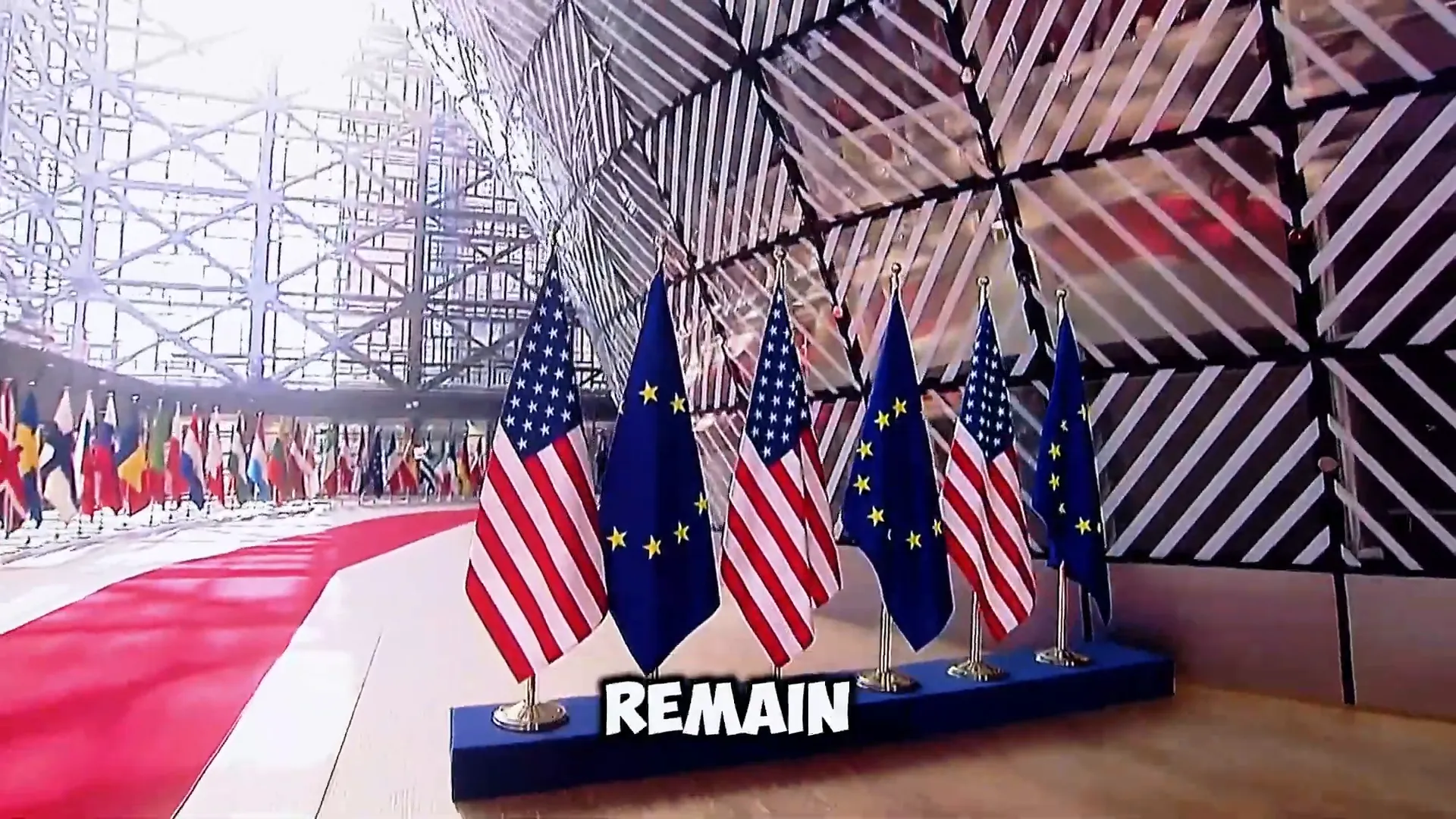
In addition (to this), Costa noted the positive momentum in EU-UK relations (which he believes can be explored further). He underscored the need for pragmatic collaboration (because it enhances mutual interests). However, this momentum presents challenges; although progress is evident, it requires sustained effort.
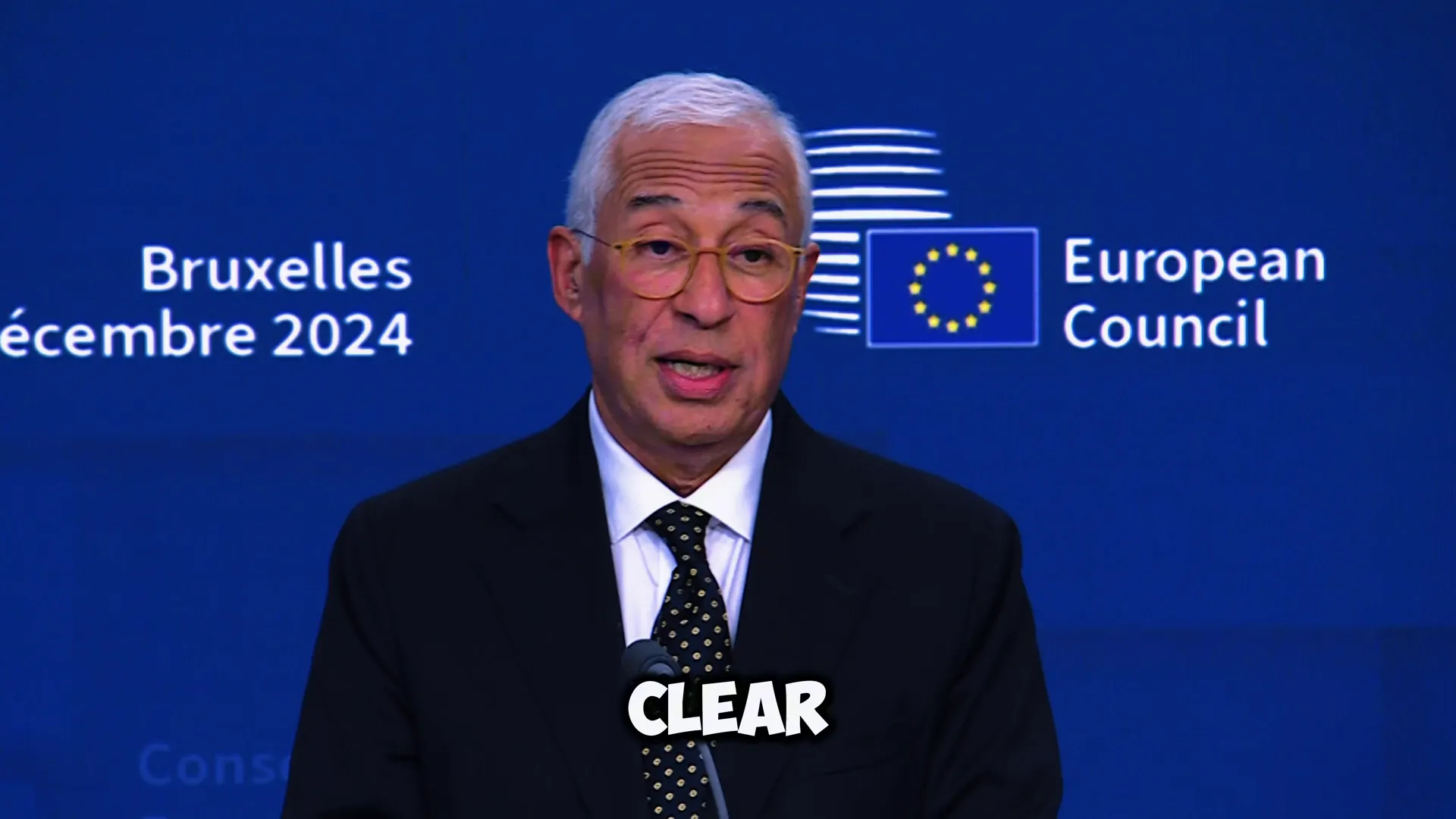
Strategic Focus Areas
- Enhancing collaboration with the United States on economic and security issues.
- Building on the positive energy in EU-UK relations.
- Engaging with various global partners for mutual benefits.
Orbán’s Summary of Hungary’s Achievements
As Hungary’s presidency draws to a close (1), Orbán reflects on the significant achievements made during this period. He expresses gratitude for the collaboration with other leaders; however, he notes that they managed to set aside political differences to address critical issues. This was important, because it allowed for progress, although challenges remain.
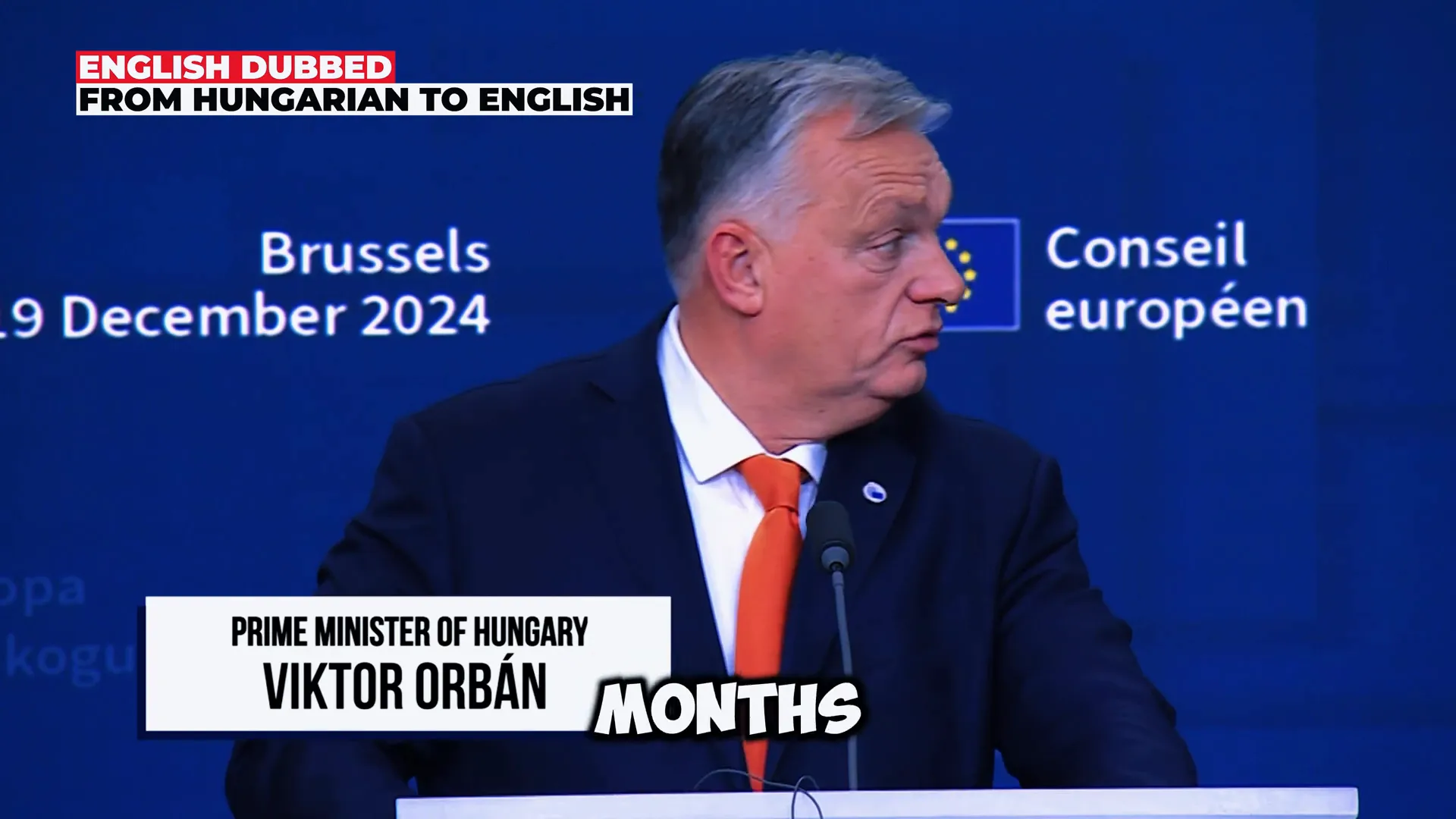
Orbán emphasized (the) historic decision to remove internal land border controls for Romania and Bulgaria, effective January 1, 2025. He also noted advancements in the Western Balkans’ accession path—however, this had been stagnant for years.
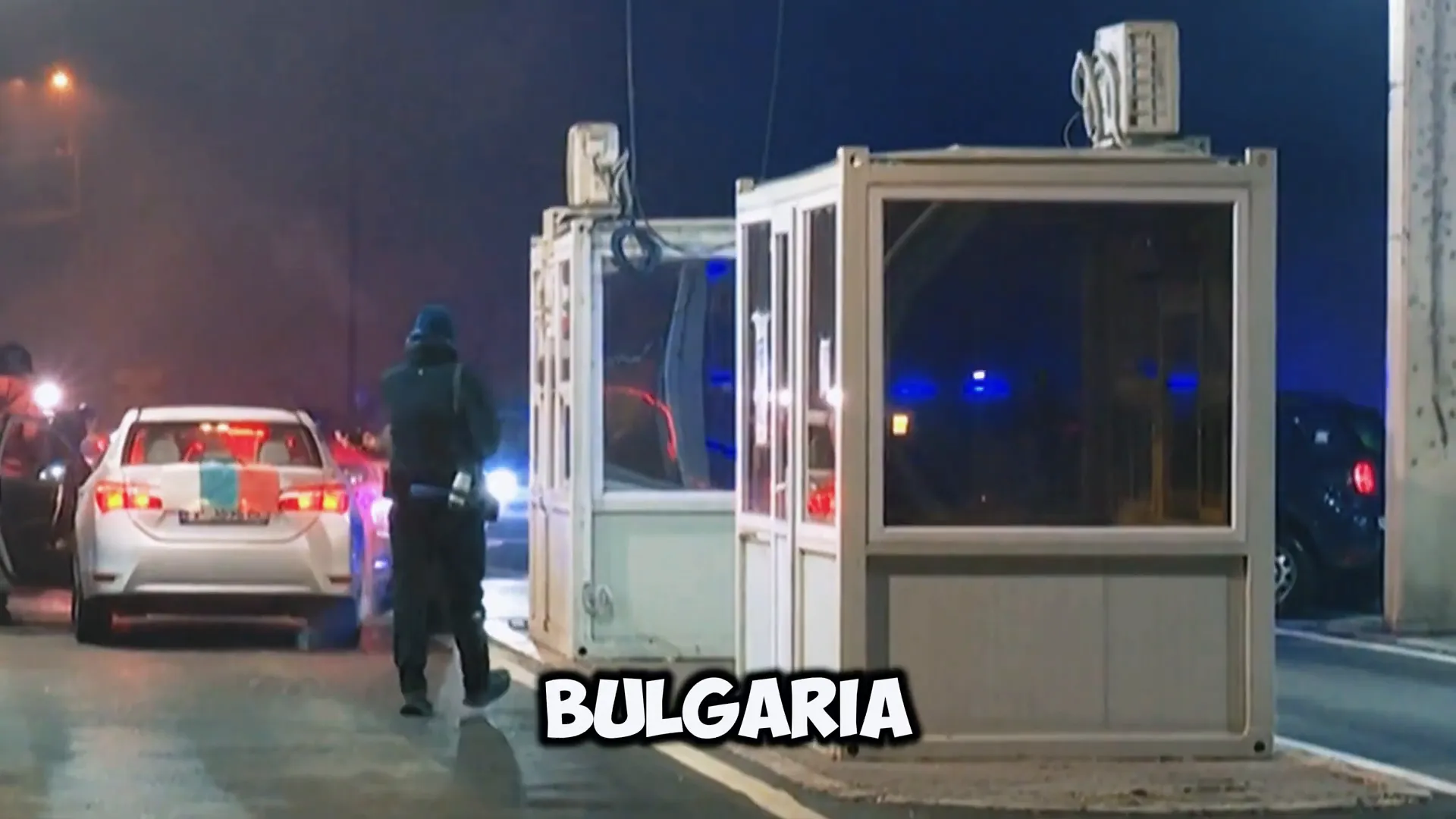
Notable Accomplishments
- Successful adoption of the Budapest Declaration.
- Historic decision for Romania and Bulgaria’s Schengen membership.
- Progress in negotiations with Montenegro, Albania, and Serbia.
Von der Leyen on Syria’s Future and Schengen Area Milestones
Ursula von der Leyen (1) emphasized significant implications of recent changes in Syria. With the fall of Assad regime, there is renewed hope for Syrian people. However, she cautioned (that) it is still too early to determine whether new leadership will fulfill its promises regarding territorial integrity and minority protections. Although optimism exists, one must remain vigilant because the situation remains fluid; this complicates any predictions.
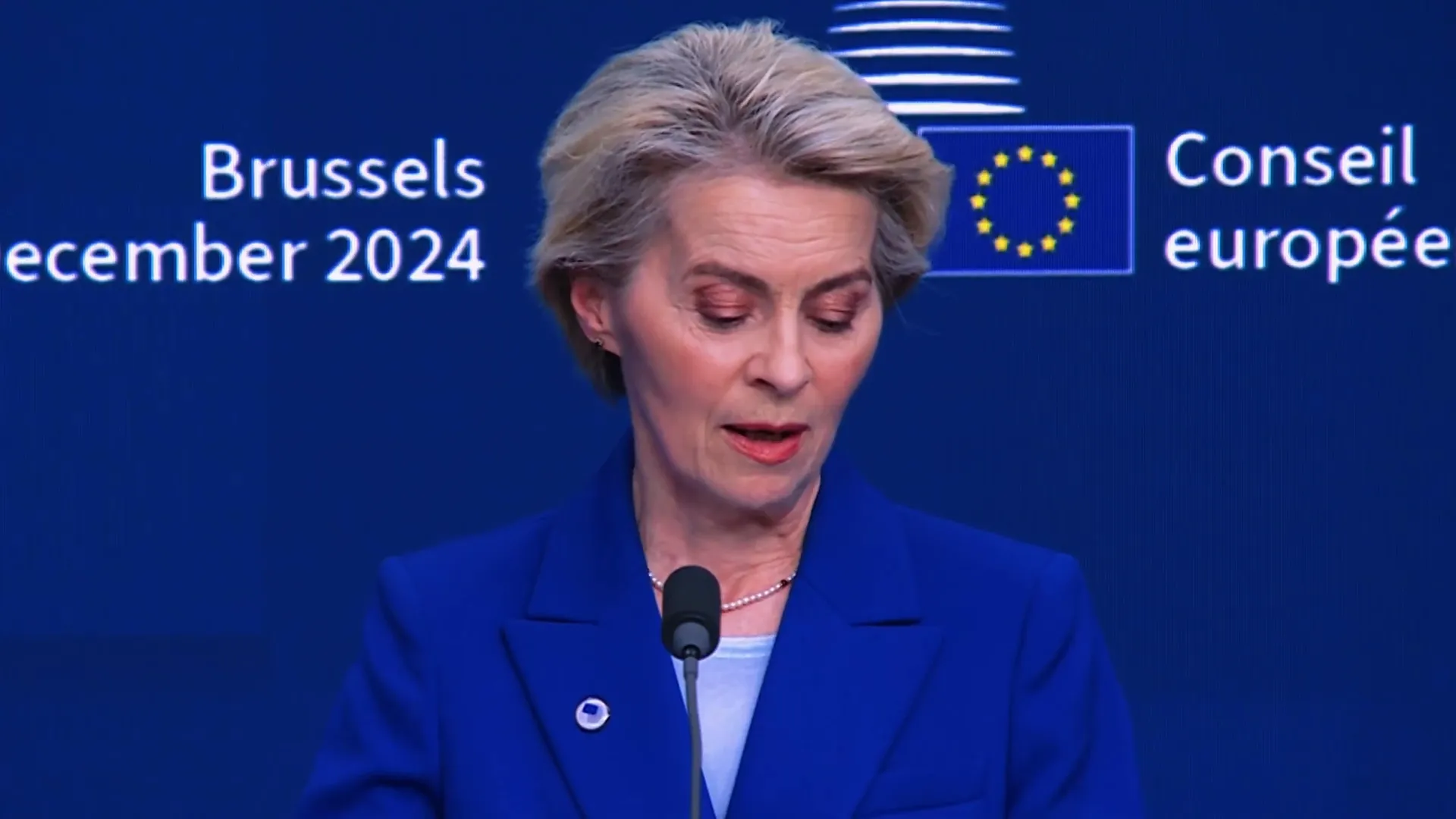
Von der Leyen (1) outlined the European Union’s commitment to support Syria during this critical juncture; she highlighted the importance of engaging with regional partners (however) addressing humanitarian needs effectively. The EU has become Syria’s largest donor (but) pledging over €160 million in humanitarian aid for the current year. This is significant because it reflects the urgency of the situation. Although many challenges remain, the EU’s efforts are crucial in providing necessary assistance.
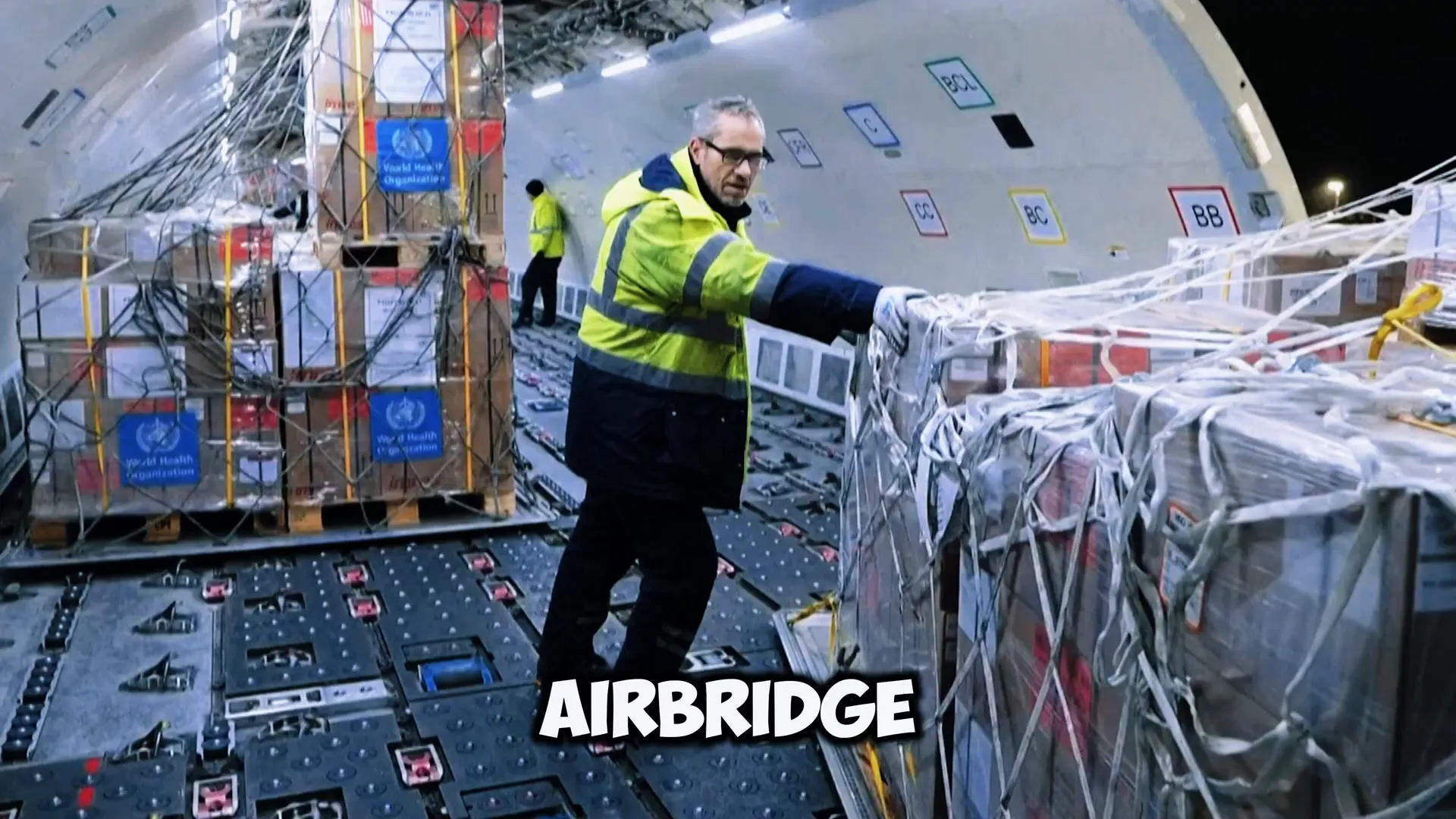
Key Points on Syria’s Future
- Engagement with regional partners to address the humanitarian crisis.
- Establishment of political channels to facilitate aid and support.
- Commitment to ensuring voluntary and dignified returns for displaced Syrians.
Full Speeches: António Costa
António Costa’s address (focused on 2 main issues): the ongoing war in Ukraine and the EU’s role in the global landscape. He reiterated the EU’s unwavering support for Ukraine, emphasizing that it is crucial (for Ukraine) to determine the terms of its peace. However, this presents challenges, although the EU remains committed. Because of this, the situation remains complex and delicate.
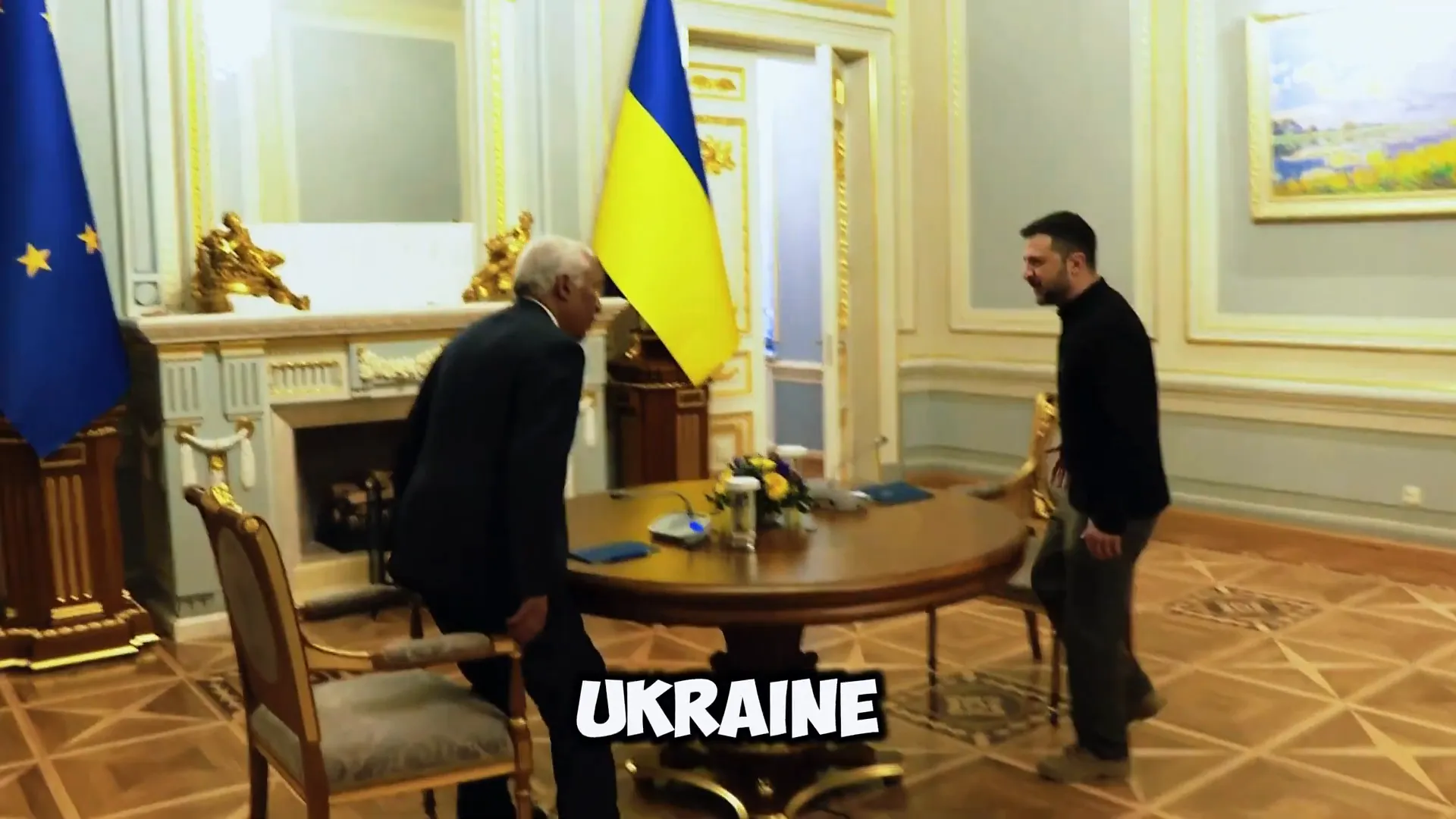
He made it clear that the EU’s (commitment to Ukraine includes implementing sanctions against Russia) and providing financial support. Costa stated that the EU (stands ready to do whatever it takes) to ensure Ukraine’s strength in future negotiations; however, there are challenges ahead. Although the support is robust, it remains to be seen how effective this will be, because negotiations can be unpredictable.
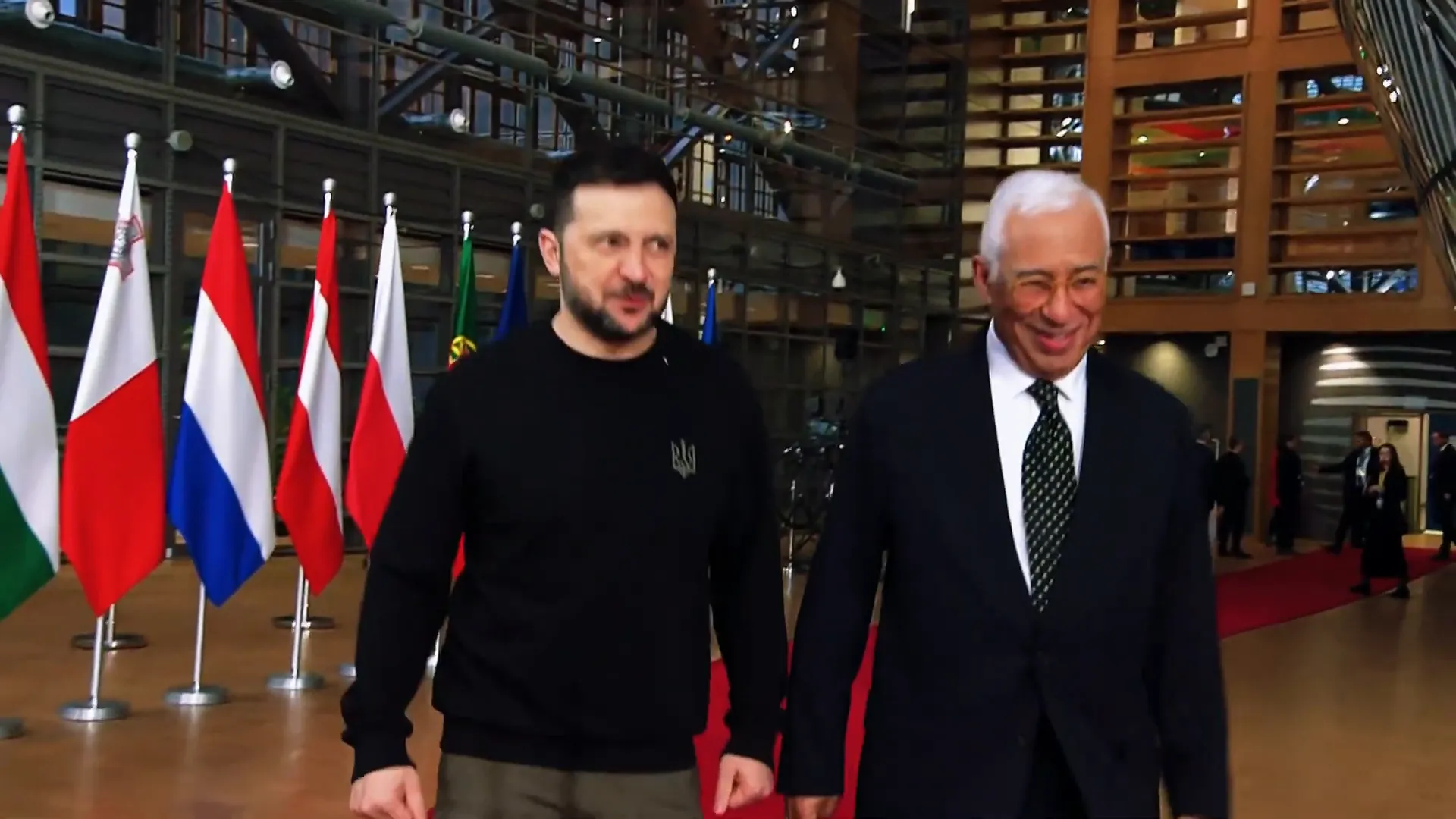
Key Takeaways from Costa’s Speech
- The EU’s commitment to Ukraine’s sovereignty and territorial integrity.
- Implementation of the 15th sanctions package against Russia.
- Financial support to exceed €130 billion by 2025.
Full Speeches: Ursula von der Leyen
Ursula von der Leyen (1) emphasized the strategic significance of enhancing Ukraine’s stance in the face of continuous aggression. She remarked that 2025 will signify three years since the onset of the invasion; this makes it a crucial year for EU’s endeavors. However, because of the complexities involved, progress may be challenging. Although the timeline is pressing, the situation remains fluid.
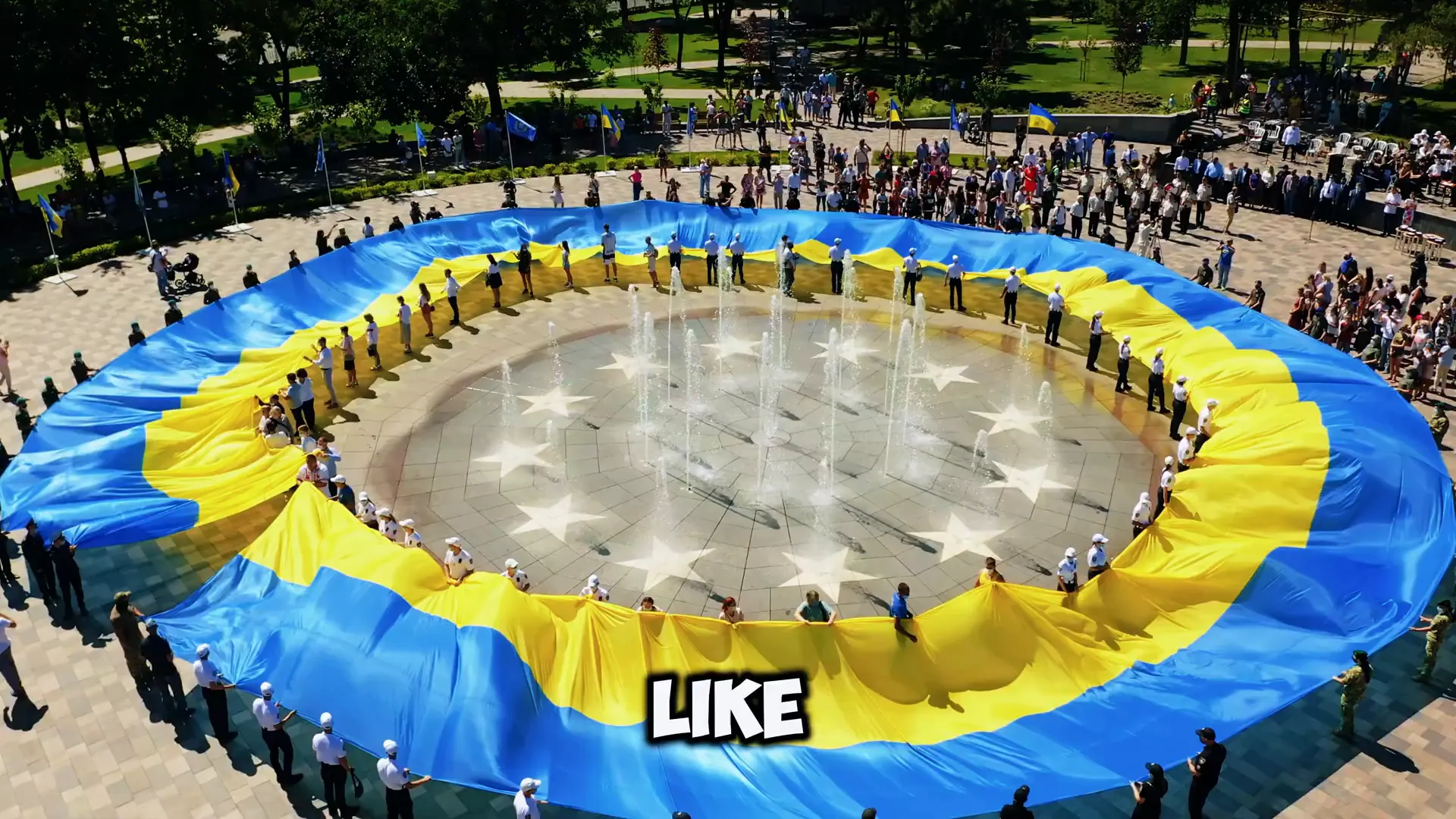
Von der Leyen outlined (the) EU’s financial commitments—stating that nearly €130 billion has been allocated to Ukraine (in order) to ensure economic stability. She stressed the need for enhanced energy infrastructure: to withstand Russian attacks. Furthermore, she emphasized collaborative efforts with the EU to keep Ukraine’s lights on during winter months (however) this poses significant challenges. Although support is crucial, it remains to be seen whether the necessary resources will be sufficient.
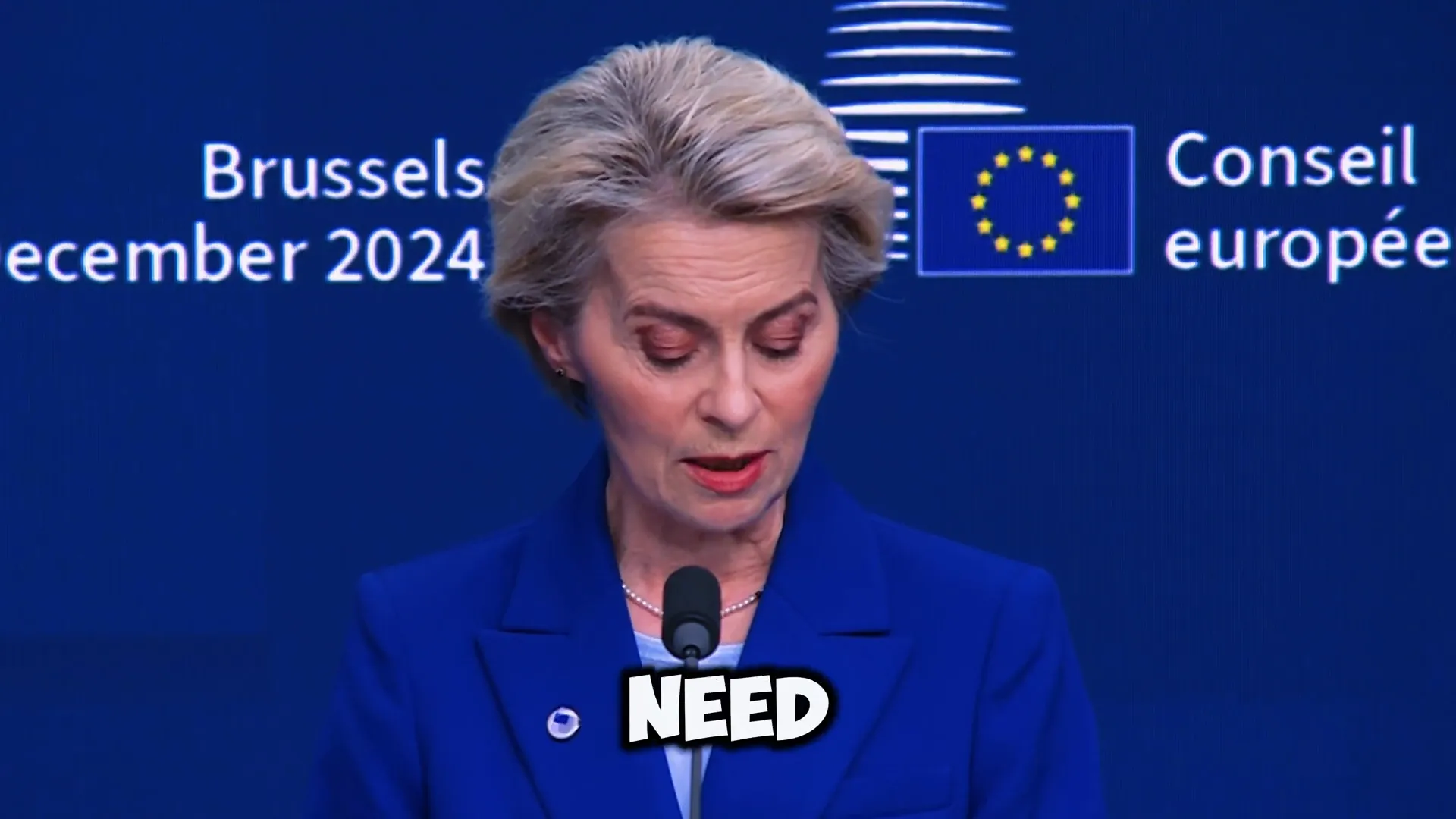
Significant Points from von der Leyen’s Address
- Support for Ukraine’s military and humanitarian needs.
- Plans for further financial assistance through the Ukraine Facility.
- Commitment to improving energy interconnectivity within the EU.
Full Speeches: Viktor Orbán
Viktor Orbán reflected (on) the challenges faced during Hungary’s presidency: wars in Ukraine and the Middle East. He emphasized the importance of a political presidency that prioritizes decisive action (instead of) bureaucratic processes; however, this approach is not without its critics. Although some argue that efficiency is vital, others contend that careful deliberation is necessary (because) hasty decisions may lead to unintended consequences.

Orbán (emphasized) the importance of Budapest Declaration: it calls for simplification revolution in EU policies. He reiterated need for affordable energy (and) support for small and medium-sized enterprises—essential components for enhancing EU’s global competitiveness. However, this push may face challenges, although the benefits could be substantial. Because of these factors, it’s crucial to consider various perspectives.
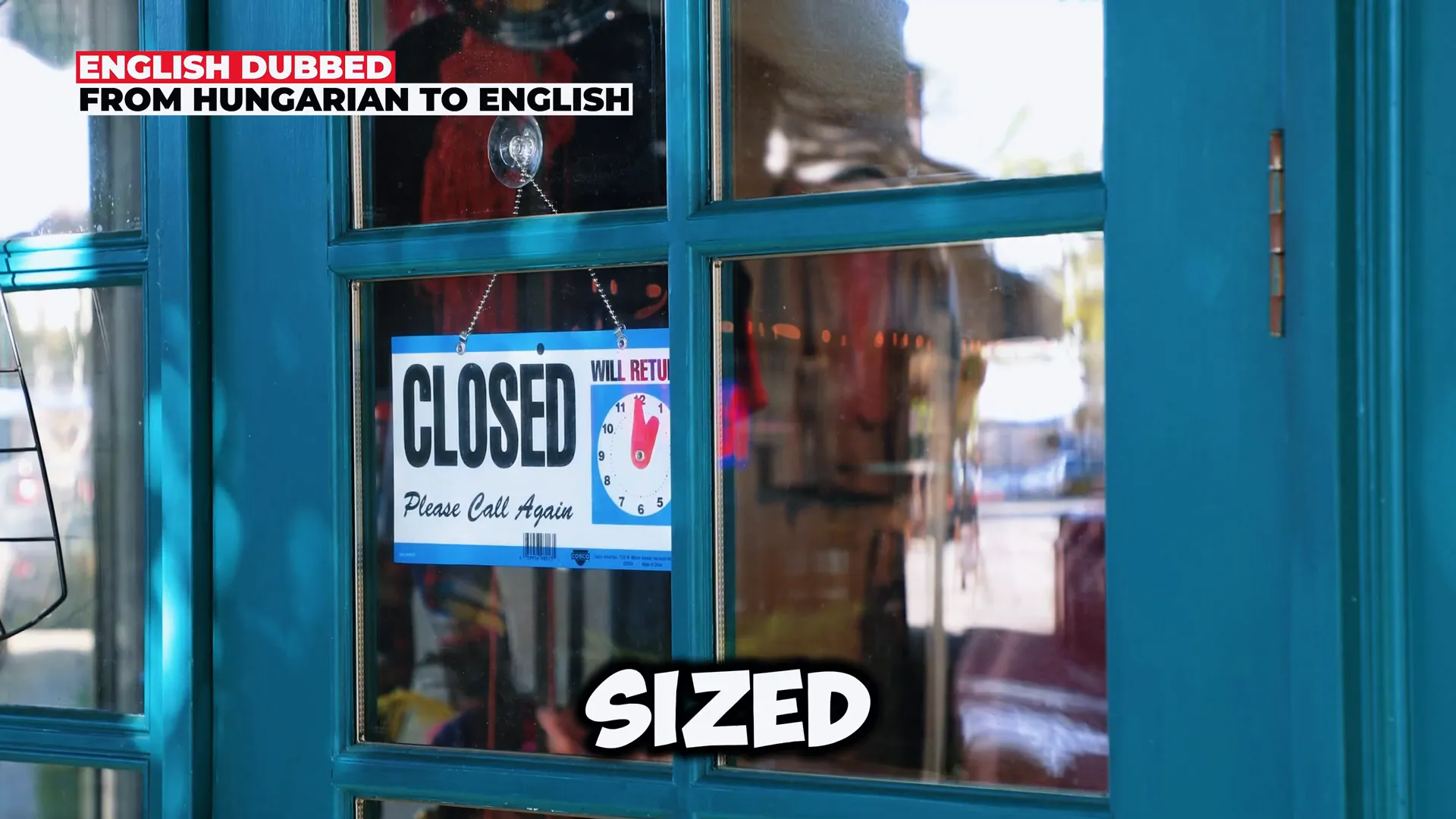
Critical Points from Orbán’s Speech
- Advocacy for a political approach to EU presidency.
- The Budapest Declaration’s focus on competitiveness and energy.
- Achievements in agricultural policy and addressing anti-Semitism.
